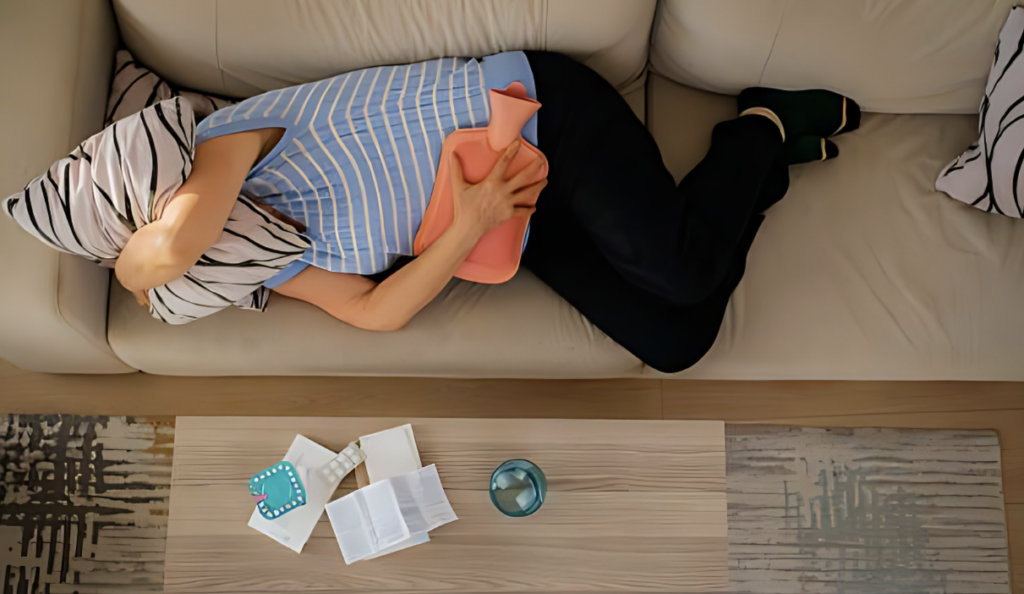No products in the cart.
Drugs and Medications
Coping Strategies for Menopause Symptoms
During menopause, many women have hot flashes, nocturnal sweats, mood fluctuations, and sleep difficulties. Fortunately, there are various coping strategies for menopause relief.
If you are starting to feel the symptoms of menopause, you are not alone. This is a natural phase of a woman’s life that causes a variety of changes as a result of hormonal shifts.
Understanding what to do throughout menopause can considerably reduce discomfort and help you negotiate the transition more comfortably. Finding the proper remedy for you is essential, whether it’s through lifestyle modifications, natural therapies, or hormone replacement medication.
Understanding Menopause
Menopause is a normal biological process that signals the end of a woman’s reproductive years. It typically happens in a woman’s late 40s to early 50s and is described as the lack of menstruation for 12 consecutive months. This is caused by a decrease in the production of estrogen and progesterone, the hormones that regulate the menstruation cycle.
Symptoms of Menopause
The symptoms of menopause might differ from woman to woman. Some women may go through it with little discomfort, while others may have more severe symptoms.
The most common symptoms include hot flashes, nocturnal sweats, mood swings, sleep difficulties, vaginal dryness, and changes in libido.
Hot flashes are probably the most well-known menopause symptom. They are distinguished by a rapid sensation of great heat that spreads throughout the body, frequently accompanied by flushing and perspiration.
Night sweats are similar to hot flashes, except they occur during sleep, causing disruptions in sleep patterns and exhaustion.
Mood swings are frequent throughout menopause, and they can range from minor irritability to severe anxiety and melancholy. Sleep difficulties, such as insomnia or frequent waking up during the night, can increase mood swings and negatively impact general well-being.

Common Misconceptions
There are various myths about menopause that can lead to confusion and anxiety. One prevalent misperception is that menopause means the end of a woman’s vigor and attractiveness. This is a natural stage of life and does not determine a woman’s worth or beauty.
Another myth is that menopause is only a physical process. While physical symptoms are noticeable, it also has substantial emotional and psychological consequences. Understanding and managing these aspects are critical to general well-being.
Natural Remedies for Menopause Symptoms
Many women choose to try natural therapies before pursuing additional choices. There are a few natural therapies that can help with menopause symptoms.
Black cohosh, for example, is a famous herbal medicine that has been used for millennia to treat hot flashes and night sweats. Other natural medicines include evening primrose oil, dong quai, and red clover.
In addition to herbal remedies, lifestyle adjustments can help with menopause symptoms. Regular exercise, such as walking, swimming, or yoga, can help minimize hot flashes and enhance mood. Meditation and deep breathing exercises are also effective stress management approaches.
Hormone Replacement Therapy
Hormone replacement treatment (HRT) may be indicated for women with severe menopause symptoms. HRT entails taking estrogen and, in some circumstances, progesterone to treat symptoms caused by hormonal imbalances. It can be given as pills, patches, lotions, or vaginal rings.
HRT is quite helpful at treating hot flashes, nocturnal sweats, and vaginal dryness. However, it is not without risk. Long-term HRT use has been linked to an increased risk of certain health problems, such as breast cancer, cardiovascular disease, and stroke. To make an informed decision, talk to your doctor about the potential dangers and benefits of HRT.

Lifestyle Changes to Ease Symptoms
In addition to natural therapies and hormone replacement therapy, several lifestyle adjustments can greatly reduce menopause symptoms.
Maintaining a nutritious diet is critical during this time. A diet high in fruits and vegetables, healthy grains, and lean meats can help alleviate the severity of hot flashes and nocturnal sweats. Avoiding triggers like caffeine, alcohol, and spicy meals can also help.
Regular exercise is another important element of menopause symptom management. Participating in moderate-intensity activities for at least 30 minutes each day can enhance sleep, reduce stress, and boost mood. Strength training exercises can also assist maintain bone density, which decreases during menopause.
Diet and Nutrition for Menopause
Hormonal changes during menopause might alter metabolism, causing weight gain or difficulties decreasing weight. Maintaining a healthy weight requires a focus on good eating. Consuming calcium and vitamin D-rich foods such as dairy products, leafy greens, and fortified cereals can assist maintain bone health.
Omega-3 fatty acids, found in fatty fish such as salmon and sardines, can aid to reduce inflammation and enhance cardiovascular health. Including foods high in phytoestrogens, such as soy products, flaxseeds, and lentils, may also help with menopause symptoms.
Exercise and Menopause
Regular physical activity is critical to general health and well-being, particularly during menopause. Not only does exercise help with menopause symptoms, but it also lowers the chance of chronic conditions like heart disease and osteoporosis.
A mix of aerobic exercises (such as walking or cycling) and strength training can provide several benefits. Aerobic exercise raises the heart rate and improves cardiovascular health, but strength training preserves muscle mass and bone density. To get the most out of your training program, switch up the sorts of activities you do.

Alternative Therapies for Menopause
Alternative therapies, in addition to traditional treatments, can be used to manage menopause symptoms. Acupuncture, for example, has been demonstrated to lessen the occurrence and severity of hot flashes.
Other alternative therapies, such as yoga, meditation, and massage, can aid with stress reduction, sleep improvement, and relaxation.
It’s crucial to note that alternative therapies don’t work for everyone, and their efficacy varies by person. Consulting with a skilled practitioner or healthcare provider can help you choose whether alternative therapies are right for you.
Conclusion
Menopause is a unique journey for each woman, and determining the best way to managing its symptoms is critical. There are numerous solutions accessible, including natural cures and lifestyle adjustments, hormone replacement therapy, and alternative therapies. When deciding how to manage menopause, you must examine your specific needs, preferences, and health history.
Remember, this change does not have to prevent you from living life to the fullest. Understanding your alternatives and taking proactive efforts will allow you to confidently traverse this phase and welcome the new chapter ahead.
Trusted Health, Wellness, and Medical advice for your well-being



Recommended Posts
Fat Cells Support Tumor Growth
Did you know that our body’s fat cells can potentially assist tumor growth? It may
Is Dance Therapy Effective
Dance has long been used for self-expression, but did you know it may also be
In a moving statement on her battle with mental illness, Serena Williams admits that she is “Not OK”
Serena Williams, who welcomed her second child with husband Alexis Ohanian earlier this year, wrote
Are There Benefits To Eating Spicy Food
Are there benefits to eating spicy food? As everyone has felt, our lips can get
Ice baths are Courtney Cox’s favorite
People are seldom neutral about cold treatment; they either love it or detest it. And
What Do Metabolic Disorders Do To Overall Health
Metabolic disorders are a type of medical ailment that affects the body’s metabolism, which is